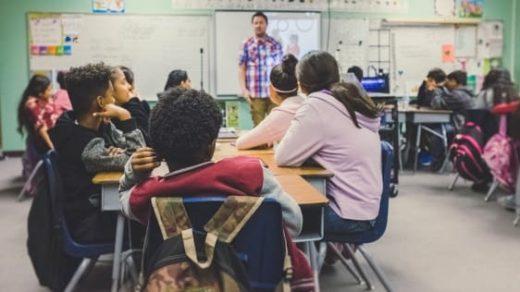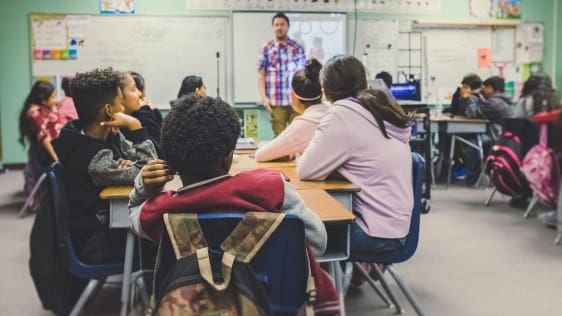AltSchool Has Been Quietly Testing Its Platform In Public Schools
Education startup AltSchool, known for its micro-schools and personalized learning platform, has started working with two public school partners. The small pilot programs, at California school districts Arcadia Unified and Menlo Park City, are a first test of AltSchool’s ability to scale its learning platform in a more diverse set of classrooms.
AltSchool founder and CEO Max Ventilla has expressed an interest in serving public schools since the company’s launch five years ago. Last spring, Ventilla rounded out his executive team with four hires from the public and charter school worlds. By 2020, he said, AltSchool would be able to serve schools of all types.
In recent months, however, that timeline appears to have accelerated. The company is now preparing to close two of its owned-and-operated micro-schools—one in Palo Alto and another in Manhattan–and refocus on its software. Meanwhile, three private schools have been testing AltSchool’s software in their classrooms since fall 2017. They share the company’s pedagogical philosophy, but they also benefit from the kind of resources available to students in AltSchool’s own micro-schools, where tuition tops $30,000.
To achieve Ventilla’s vision—which has attracted $175 million in venture funding–AltSchool will have to prove that its software has value in classrooms with high student-teacher ratios and low budgets.
“Schools in many different settings are trying to find new and better ways of serving their students. We’ve determined that’s good for us,” says chief impact officer Devin Vodicka, who previously served as superintendent of California’s Vista Unified school district. “We’re looking for that commitment to a learner-centered experience for students. That might come in the form of an independent school, a charter school, or a traditional public school. What we want to make sure is that the approach that we believe in works in a variety of contexts.”
Laying The Groundwork
At Arcadia Unified, outside of Los Angeles, superintendent David Vannasdall has been implementing the AltSchool platform in a small lab school for 35 seventh graders within his 10,000-student district. The results have been promising enough that he is laying the groundwork to pilot AltSchool more broadly, in grades 3-8, next fall.
“When we made our selection for our lab school, it’s a direct representation of the district,” Vannasdall says. “Students who have challenges, students who excel. What we’re finding is that [personalized learning] begins to remove a lot of labels. In the past we would give them a C or D and move on. Now we’re just going to say, ‘You’re going to spend more time on it.’ Once they catch up, they might three weeks later be ahead of someone else. It’s very fluid.”
For teachers, and particularly for parents, the move to competency-based assessment that accompanies personalized learning can be challenging. “It’s a paradigm shift for a lot of people,” Vannasdall says. “But what we’re seeing is–these kids want to come to school, they want to show up. It’s no longer the teacher’s classroom, so to speak.”
As for parents at AltSchool’s own locations, enrollment trends and interviews suggest they have taken the two pending school closures in stride, well aware that they signed up for a startup, not an established institution. Some say they would have preferred the news to have been delivered by Ventilla (at the time, he was on paternity leave), calling the messaging “a bit bumpy.” Most recognize that the continuation of their child’s experience depends on the company’s overall success.
“The longterm viability of this model is going to be part and parcel of being able to demonstrate the power of the operating system in a real way,” says one parent.
“It’s a startup, you’re going to have learnings along the way and you adjust,” says another. “For me, the adjustments have been communicated in a way that makes sense. I may be disappointed, but I understand.”
Fast Company , Read Full Story
(8)














